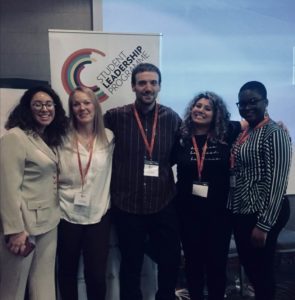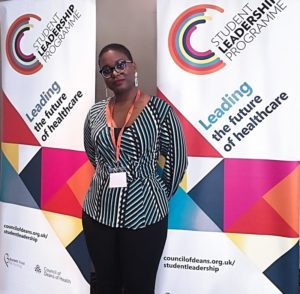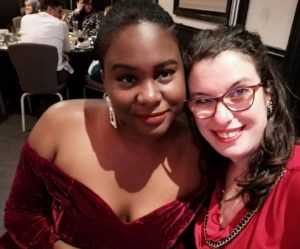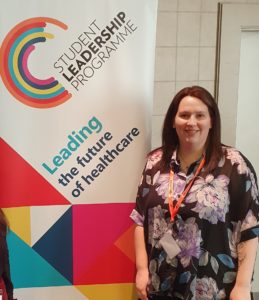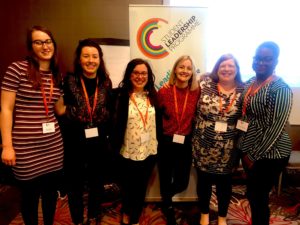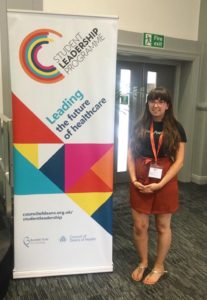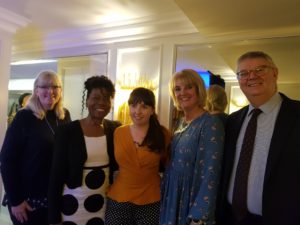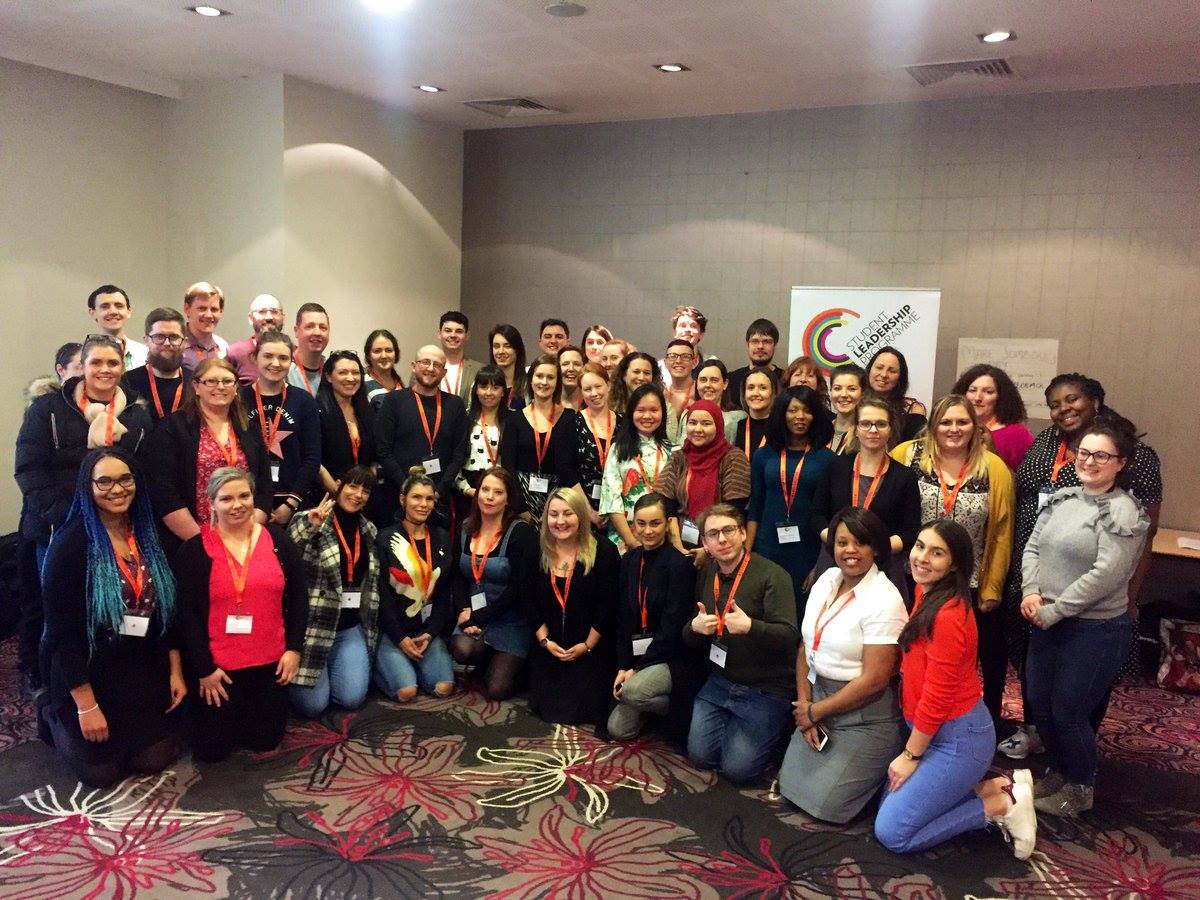By Phillip Bardy, first year adult nursing student, University of West London
I honestly hadn’t planned on applying for the Council of Deans of Health’s Student Leadership Programme. I hadn’t put myself forward for any leadership roles within university up until that point. I had told myself I was doing this because as a white man I had an inherent advantage over my colleagues within my cohort. I was not only statistically more likely to progress within my career but also to earn more. The fact is I am white male student on an adult nursing cohort in London that is predominately made up of Black, Asian and Minority Ethnic (BAME) females, and as such I recognised I have an inherent privilege that I cannot ignore. I argued I would be being greedy by taking the role of student rep, when one of my colleagues could gain valuable skills and insight from the role.
Sadly, the privilege that white males have, such as I, working within the healthcare sector is not a new trend. You’ve probably heard the tales about how old-fashioned nursing schools would only allow unmarried young ladies to join, a rule that was not applied to young men applying to become doctors. However, this privilege is not a thing of the past either. In 2018 despite women making up 77% of the entire workforce of the National Health Service (NHS), we know from gender by grade figures they only made up 47% of senior management roles, (NHS Digital, 2019 b). Furthermore, we also know that on average male medical staff are paid approximately £806 more per month whilst non-clinical female staff are paid £190 less on average, (NHS Digital, 2019 a). Additionally, BAME staff are statistically more likely to earn less than their white colleagues working within the NHS, whether they be female or male. For example, black males in managerial roles are likely to earn 20% less than their white male counterparts, (NHS Digital, 2019 a).
Therefore, I had reasoned that by giving up my ‘seat at the table’ I was doing some good, I was supporting my colleagues to have opportunities to undertake roles that I may have taken. However, one of my lecturers pointed out to me that to be a nurse is to be a leader no matter the role or seniority you occupy. This is supported by Dryer (2018) who states nurses, despite not being necessarily considered as leaders, have an integral part to play in coordinating and leading the treatment and care of their patients. Additionally, within their role as a patient advocate in the multi-disciplinary team, they need to show further characteristics and traits identified within leadership to promote the best wishes of the patient and protect their wellbeing. This led me to question whether I was being as altruistic as I thought I was, or was I just refusing to challenge myself further.
Consequently, I applied for the Student Leadership Programme. This programme seeks to develop and promote skills amongst nursing, midwifery and other allied health professionals. I didn’t have a clue what to expect or what I was letting myself in for and I certainly didn’t expect to get onto the programme. So, when I did receive the email confirming my application was successful, I will happily admit to being that surprised my cat managed to pinch the cup of tea I had just made for myself.
What followed thereafter was a two-day conference in March where I was introduced to my fellow student leaders, all of whom are exemplars and role-models. During this time, we heard from some of the previous members of the programme who outlined what they had gained from it, engaged in group activities and listened to the framework and plan for the programme. Additionally, we had several keynote speakers who attended the conference.
These speakers covered an array of topics ranging from theories of leadership to person-centredness and resilience. All these areas and topics were exceptionally informative and educational. Additionally, there was a moving story about the background and history of one of speakers and how they got to be where they are today. All the topics were understandably and appropriately linked to the key aims of the programme and completely relevant to the field of health and social care work.
However, a discussion led by Stacy Johnson MBE on inclusive leadership and diversity in the workplace was, what can only be described for me as, mind-blowing. I thought I had been a supportive ally on this issue and that I understood it – little did I realise how much more I had to learn. I had always realised there was a moral argument for diversity and how it cultural enriches not only the NHS but our society. What I did not realise was the rich evidence that indicates organisations can flourish and prosper when they encourage and promote diversity (Department for Business, Innovation and Skills, 2013).
I’d always prided myself on being tolerant and respecting others view, opinions, wishes and religions. However, I was challenged to think beyond tolerance, why was something different something that should only be viewed as being tolerated? What shouldn’t it be praised and welcomed for being the exceptional difference that it was? Why weren’t we ignoring the rules of conformity and welcoming the rich knowledge, experiences and cultural values of being different?
I sat in awe during this session, wondering how I had been so wrong whilst thinking I was so right. I realised I don’t need to be just an ally supporting people by no taking action myself. I need to be an advocate for things to get better. I need to lend my voice, ideas and arguments to the issue and support my colleagues in a much more personable manner.
So here I am now, about to engage in both the student leadership programme and my nursing degree knowing that I need to be an advocate for change. Do I know how I am going to be that catalyst yet, instead of just the supportive ally I have been previously? No, I truly don’t. However, I have some ideas; I’m still studying, I am still finding my way and I am still trying to be a sponge and soak up all the knowledge I can. Yet, what I do know is that I need to be prepared to ask my colleagues and friends questions and make myself uncomfortable with home truths about the rights and privileges that I have taken for granted. Most importantly I need to reflect on my own values and belief system to identify any unconscious bias that may influence my ability to listen to and acknowledge the issues my BAME and female colleagues face. This will enable me to ensure I do not propagate any barriers my colleagues encounter whilst supporting them to overcome these issues.
References:
Department for Business, Innovation and Skills (2013) The business case for equality and diversity: a survey of the academic literature. Available at: https://www.gov.uk/government/publications/the-business-case-for-equality-and-diversity-a-survey-of-the-academic-literature (Accessed: 1st April 2020).
Dryer, C. (2018) ‘Leadership’, Teaching and Learning in Nursing. 13(3). pp. A7-A8. doi: 10.1016/j.teln.2018.04.002
NHS Digital (2019 a) NHS basic pay. Available at: https://www.ethnicity-facts-figures.service.gov.uk/workforce-and-business/public-sector-pay/nhs-basic-pay/latest#gender-pay-gap-by-type-of-role (Accessed 1st April 2020).
NHS Digital (2019 b) NHS Workforce Statistics – December 2018 (Including supplementary information on Mental Health workforce). Available at: https://digital.nhs.uk/data-and-information/publications/statistical/nhs-workforce-statistics/december-2018 (Accessed: 1st April 2020).

